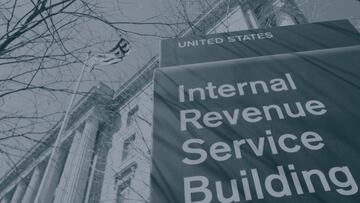When is Tax Day 2021 and how can you avoid penalties?
The IRS have extended the tax return deadline for most taxpayers, but you could still face financial penalties if you don't get your filing in on time.


As is to be expected, there have been some changes to this year’s Tax Day - the deadline for Americans to get their tax affairs in order with the IRS. The tax authority has extended the deadline by a month to allow more time to get things sorted, but the threat of financial penalties still looms if you miss it.
Here’s what you need to know about the new deadline, and what happens if you miss the deadline.
- What are the maximum unemployment benefits per state?
- IRS confirms tax return backlog from 2019
- A new proposal to revamp unemployment systems
- Expected payment dates for child tax credit in the US
IRS announces tax return deadline extension
The most notable change for 2021 is that the IRS have pushed back the deadline from 15 April, to 17 May. This change came after pressure from lawmakers and accountants’ societies that called for extra time to be granted to allow filers to reconcile a confusing years for personal finances.
IRS Commissioner Chuck Rettig said of the decision: "This continues to be a tough time for many people, and the IRS wants to continue to do everything possible to help taxpayers navigate the unusual circumstances related to the pandemic, while also working on important tax administration responsibilities.”
Remember #TaxDay: The individual tax filing and payment deadline was extended to May 17, 2021. If you still have not filed a 2020 tax return, see more information from #IRS at https://t.co/RwI6wqUbRw pic.twitter.com/HM8rNcm2eM
— IRSnews (@IRSnews) April 14, 2021
The 17 May extension also applies to federal income tax payments for the 2020 tax year, with no penalties or interest accrued on the payments until after that date. This extension applies to both individual taxpayers and those who pay self-employment tax.
If you need additional time to file beyond the new 17 May deadline, you can request a filing extension but must do so before 15 October 2021. You can do so by filing Form 4868 through a tax professional, or using tax software or the Free File link on IRS.gov.
One area not affected by the deadline change is the estimated tax payments, which are made quarterly to the IRS by people whose income isn't subject to income tax withholding. Most taxpayers have their taxes automatically withheld by their employer but for those who do not, such as recipients of self-employment income, interest, dividends, alimony or rental income, will have had the original 15 April deadline.
What happens if your tax returns are late?
Although the 17 May deadline is a pretty universal rule for this tax season, the likelihood of sustaining penalties for late filing does depend on your situation.
Want to receive advance payments of the expanded #ChildTaxCredit later this year? Of course, you do! That’s a lot of $! Make sure to file your taxes by May 17th so the IRS has your information for advance payments of the #CTC! pic.twitter.com/R6IW0E8o1j
— Children's Defense Fund (@ChildDefender) April 16, 2021
E-File outlines two separate groups when it comes to tax filers:
Penalties apply if you owe taxes and do not file your tax return or apply for an extension on time. You will incur different penalties (and likely owe the IRS interest) if you file your return or extension on time, but have not paid the taxes owed by the tax deadline.
Related stories
Penalties generally don’t apply if you are expecting to receive a refund and do not file your tax return on time.
For full information on the financial penalties for late filing of tax returns or tax extensions, check out this breakdown of Late Filing Payment Penalties.

